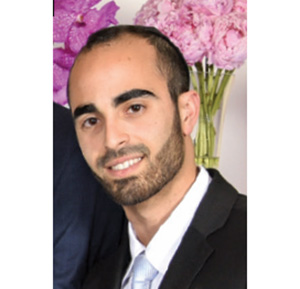
Pinchas is known for his act of zealotry he took against Zimri and Cozbi. Zealotry against other people is a difficult concept to relate to and involves a number of criteria in order to be “eligible” to be involved in such a deed. It’s hard to find a person like Pinchas who fulfilled those criteria and was entitled to be zealous against other people. But although we may not be on the level of Pinchas in this regard, it seems like there is another form of zealotry that is very applicable to each and every one of us on a constant basis…
Every person has a fiery side to them. What that means is that we naturally have a need to value something, and we also have a need to be passionate about it. When we see someone go against that which we value and are passionate about, it’s very normal for us to get fired up about it. While it is highly commendable to value the right things and be passionate about them, a very common slippery slope can start to occur—and that is your reaction to circumstances when other people go against that which you value. On the one hand, it’s totally normal to feel provoked and heated, and it’s certainly praiseworthy if you feel bothered when someone goes against that which you know to be correct and just. On the other hand, when all these emotions turn into a retaliation of sorts, and turns into a desire to defeat the other person physically or emotionally (i.e., to hurt them in any way), that’s when you know that this feeling might very likely be coming from a place inside of you that you need to come to terms with and resolve. Essentially, some people’s “zealotries” are really mistaken for their own insecurities.
So I thought, if we all have a need to be zealous, how can we channel that drive in a setting that is appropriate? I saw it brought down in the name of Rav Shimshon Pinkus that even though zealotry is a hard thing to use today, one may make use of it regarding himself. If one sees that his behavior is leading him into error, he should take even a drastic measure to ensure that he change his ways. Based on that I thought that all day long we struggle with our yetzer that pulls us in all different directions. Anyone can surely testify the amount of times they are put to the test just by their simple interactions with other people, be it at the home with family, at work, in shul, on the basketball court, etc. Many can admit how all of a sudden once they stand before Hashem in tefilla, a million and one completely random, irrelevant and totally inconsequential thoughts pervade one’s mind to distract him or her from concentrating on tefillah. The list goes on and on. Anger, jealousy, revenge, laziness, low self-esteem, depression, worry, haughtiness…there are endless things that we need to work on, and we need our zealous nature to stay in the game and be fierce to overcome and conquer, to retain our grit and prevail over our own self.
But taking it one step further, when we feel the impulse to be zealous against other people, that’s really an opportune time to use that zealousness right then and there; it to be zealous toward ourselves, to search and introspect deliberately if that zealousness against that other person really stems from purity, or whether there’s a myriad of unresolved issues we have with ourselves that we need to be zealous about and begin to resolve. I read once that the Chofetz Chaim used to say that in his younger years he wanted to perfect the world. That didn’t work so he figured he would work to perfect Lithuania. That also didn’t work so he decided that he would just perfect Radin, which again failed. He finally decided that he would just try to perfect himself. By perfecting himself he then influenced Radin, the whole of Lithuania and Jews worldwide! We’d be surprised how much we can indirectly be zealous toward other people in a beneficial way once we start being actively zealous with ourselves.
By Binyamin Benji
Binyamin Benji is a graduate of Yeshivas Rabbeinu Yitzchak Elchanan and Wurzweiler School of Social Work. He currently learns in Lakewood and is the author of the Sephardic Congregation of Paramus’ weekly Torah Talk. He can be reached at benjibenji26@gmail.com.










